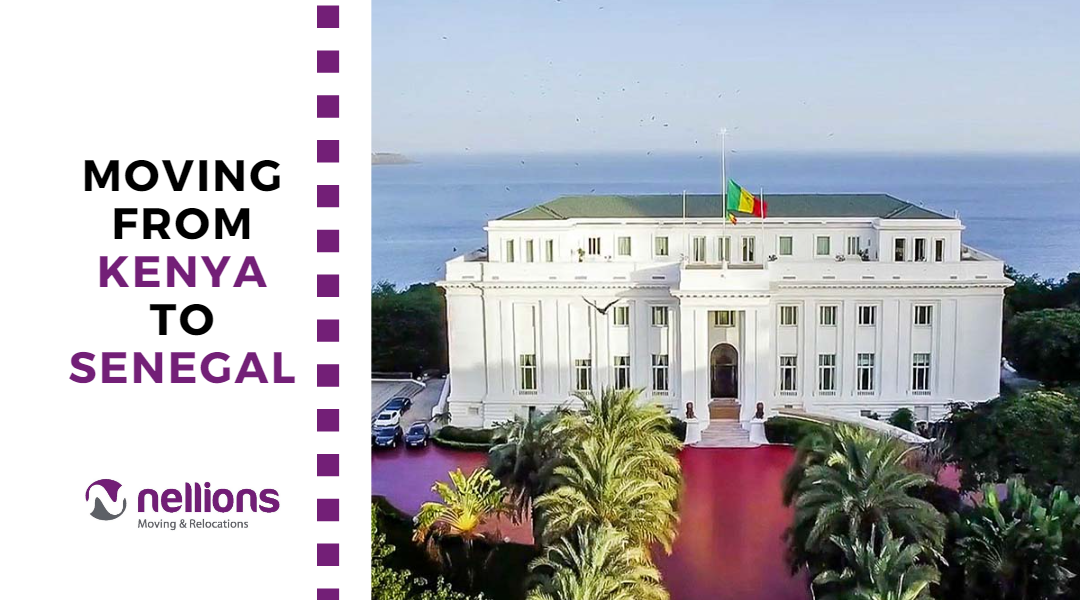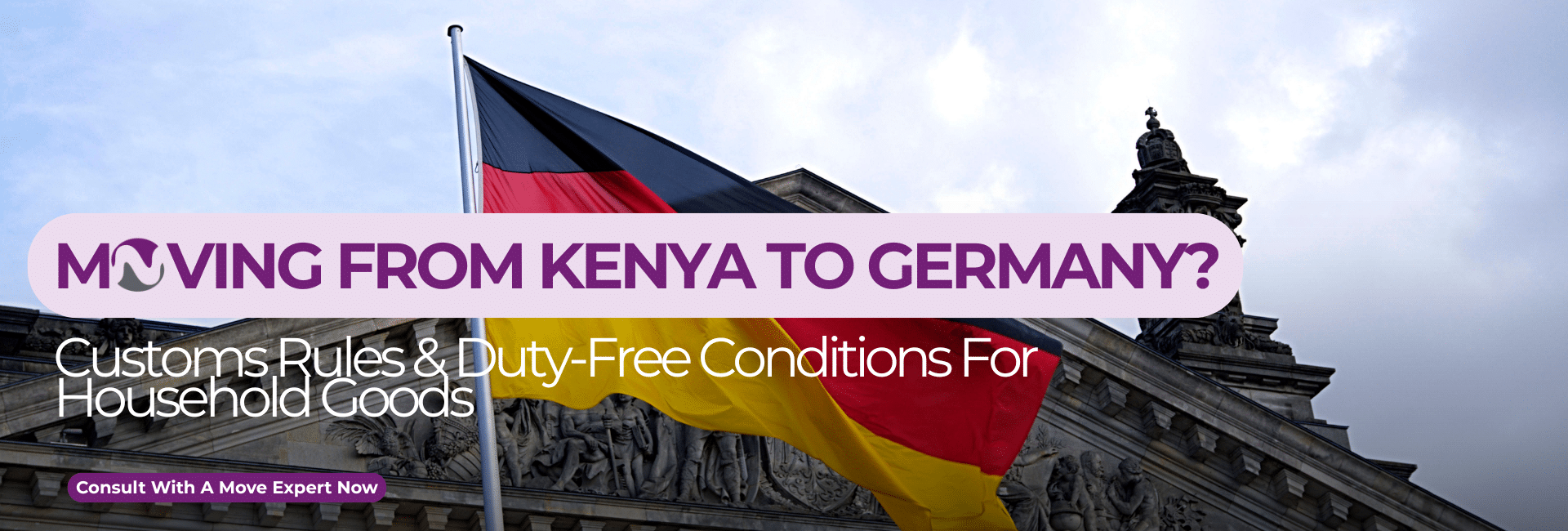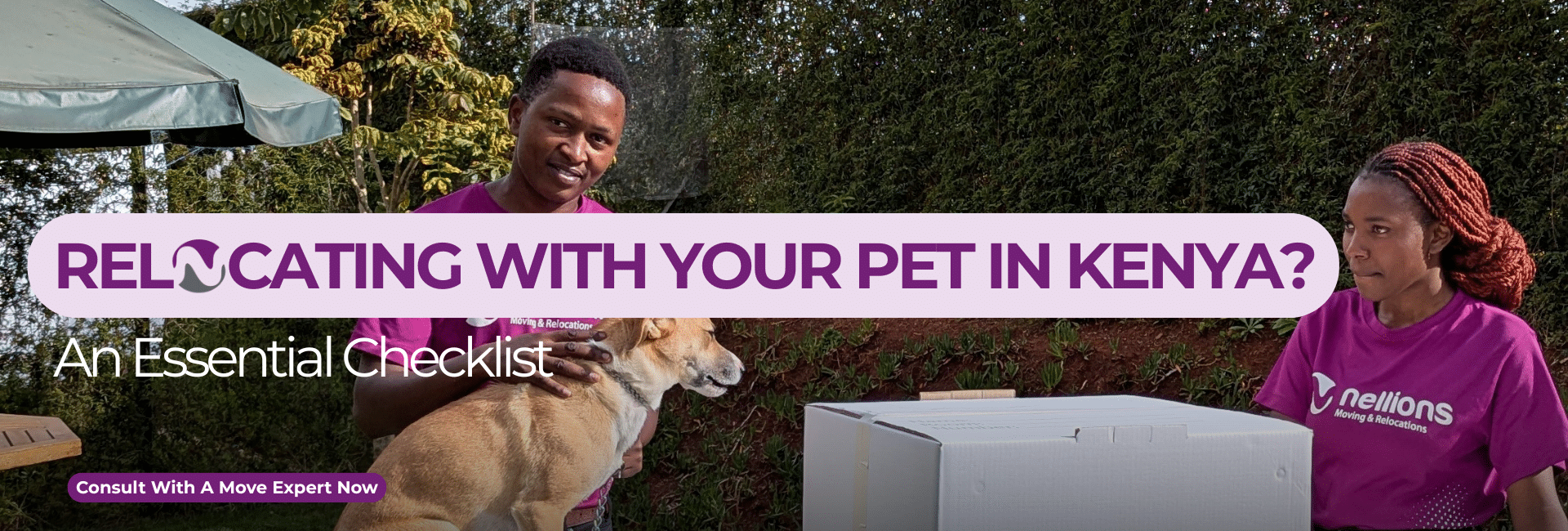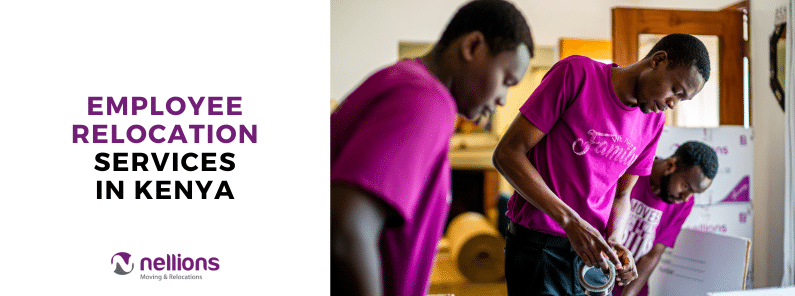Relocating from the vibrant landscapes of Kenya to the captivating West African nation of Senegal is an adventure that opens up new horizons, experiences, and opportunities. These two countries, located on opposite sides of the continent, showcase the diversity and richness of African cultures, traditions, and histories.
Kenya, known as the “Jewel of East Africa,” boasts breathtaking landscapes that range from the iconic savannahs of Maasai Mara to the snow-capped peaks of Mount Kenya. Beyond its natural wonders, Kenya is also famous for its long-distance runners, producing world champions who have dominated Olympic tracks for decades.
On the other side of Africa lies Senegal, a vibrant and culturally diverse nation situated in West Africa. Known as the “Gateway to Africa,” Senegal welcomes visitors with warm hospitality (called “Teranga” by the Senegalese natives) and a rich tapestry of traditions. Senegal also has a fascinating natural landscape; from the tropical region of the Casamance to the green mountains and waterfalls of Kedougou, national animal reserves, to the dry Sahel regions spotted with iconic Baobab trees.
The capital city, Dakar, is a peninsula city surrounded by cliffs and surf-worthy waves, with a climate similar to southern Italy, jutting out into the Atlantic ocean. Dakar is fast becoming the regional cosmopolitan hub for art, music, and culture – and of course, their nationally-renowned football team, who recently won the Africa Cup of Nations and was a finalist in the World Cup.
Senegalese music showcases innovation, cultural heritage, and social commentary, with rising stars gaining recognition locally and internationally. Musicians fuse traditional rhythms with contemporary sounds, exploring Afrobeat, hip-hop, West African folk music, reggae, jazz, and pop. A new generation of artists brings fresh energy, experimenting with electronic elements and global collaborations.
Fun facts about Senegal and Kenya
- Ethnic Diversity: Both Senegal and Kenya are characterized by their deep-rooted cultural heritage. Senegal embraces a cultural mosaic of over 20 ethnic groups. At the same time, Kenya is home to 42 indigenous tribes, each with its own unique traditions, languages, and customs.
When comparing cuisine, both countries have an affinity for meat dishes – such as Kenyan nyama choma (grilled meat) and Senegalese dibi and michoui (marinated grilled mutton and chicken). With an expansive coastline, Senegal has rich fish cuisines, epitomized by the very popular dish called chep-bu-jen (a one-pot meal consisting of fish, rice, vegetables, and an assortment of spices) that delights locals and visitors alike.
- Entrepreneurship and Innovation: Both Senegal and Kenya have vibrant entrepreneurial ecosystems, with a growing focus on technology and innovation.
Kenya’s Silicon Savannah in Nairobi has become a hub for tech startups and innovations, while Senegal’s business scene is thriving, with a new industrial city called Diamniadio, a new intra-city rail system, buses, and a new international airport all providing evidence of its economic ambitions. Senegal also has had a boom in foreign investment due to the exploitation face of offshore oil gas beginning at the end of 2023.
- Francophonie: Despite Kenya being an English-speaking country and Senegal a predominantly French-speaking country, both nations embrace the importance of multilingualism. Kenya became an observer member of the International Organization of La Francophonie (OIF) in 2004, while Wolof, a local Senegalese language, remains a popular lingua-france despite still accepting French in public spaces and administration.
- Sports Diplomacy: Sports, particularly football (soccer), have been a unifying factor between Senegal and Kenya. Both nations have passionate football cultures and have seen their national teams compete at the international level, most notably with Senegal winning the 2022 Africa Cup of Nations and becoming finalists in the World Cup finals that same year.
- African Union (AU): Both Senegal and Kenya have played significant roles within the African Union by contributing troops to peacekeeping operations in Africa. In addition, Senegal’s president, Macky Sall, was elected as the president of the African Union for 2022, and was responsible for financing Africa’s development, reviving African economies post-COVID-19, and boosting the continent’s stability and fight against terrorism.
- Wildlife Conservation: Both Senegal and Kenya have made significant efforts in wildlife conservation. Senegal is home to parks like Niokolo-Koba, Bandia, and Djoudj, known for their diverse bird species, and unique saltwater mangrove tributaries not found elsewhere in Africa, with flying fish species, the largest species of hyena on the African continent, red monkeys and baboons, large land and river tortoises, and several antelope species that are unique to Senegal.
Kenya is known for its world-famous national parks and reserves, such as the Maasai Mara and Amboseli National Park, which protect diverse ecosystems and support wildlife conservation efforts.
As we delve into the intricacies of moving from Kenya to Senegal, we will explore the requirements necessary to make a successful move, as well as what living in Dakar looks like.
Join us on this cross-continental journey as we’re steered by the collaborative efforts of Niofar Executive Relocation, Dakar’s leading executive relocation company, and Nellions™️:

RELOCATING TO SENEGAL FROM KENYA – 8 TIPS FROM AN INTERNATIONAL MOVING EXPERT
-
Clearing with Kenya Customs for Export
When moving from Kenya to Senegal, it is important to go through the necessary customs procedures for exporting your belongings. This involves providing documents such as a copy of your passport and KRA PIN (Kenya Revenue Authority Personal Identification Number).
-
Transit Time from Nairobi to Dakar Senegal
The estimated transit time from Nairobi to Dakar, Senegal is approximately 47 days by sea. Keep this duration in mind when planning your move and arrange for temporary accommodation during the transition period.
-
Can you Import Used Household Goods and Personal Effects Duty-Free into Senegal?
One advantage of relocating to Senegal is that used household goods and personal effects can be imported duty-free. These items should have been in your possession and used for at least six months, and they should not be in new packaging.
-
Processing a Move Certificate/Certificate of Change of Residence
To facilitate the importation process, you will need to obtain a Move Certificate or Certificate of Change of Residence. This document can be processed through the Embassy of Senegal in Nairobi or local authorities like the Kenya Police. It certifies your change of residence and is an essential requirement.
-
Registering a Certificate of Residence in Senegal
Before the arrival of your consignment in Senegal, it is necessary to register a certificate of residence. This step establishes your residency status and is typically required for various administrative purposes.
A Resident Permit is also necessary if you intend to stay in Senegal for more than 90 days.
-
You Will Require an Electronic Cargo Tracking Note (BESC Certificate)
Before the shipment sets sail, you will need to process a Cargo Tracking Note, also known as the BESC certificate. This document provides detailed information about the cargo being transported and is required for customs clearance in Senegal.
-
Restrictions on Vehicle Imports
There are certain restrictions on importing vehicles to Senegal.
The following types of vehicles are ineligible for importation into Senegal:
- Personal vehicles older than five years
- Vehicles transporting goods over 3.5 tons that are older than five years
- Vehicles transporting goods over 3.5 tons that are older than ten years
- Motorcycles
- Vehicles with a cylinder capacity not exceeding 50 cc
By understanding and preparing for these crucial details, your relocation from Kenya to Senegal can proceed smoothly, ensuring compliance with customs regulations and facilitating a seamless transition to your new home.
Exploring the Rich Diversity of Dakar: Guide for Expatriates
Dakar, the vibrant capital of Senegal, is a city that captivates the hearts of expatriates and travelers alike. With its stunning coastline, cultural heritage, and warm hospitality, Dakar offers a unique experience that attracts people from all over the world.
In this section, we shall explore the most popular places where expatriates and foreigners prefer to live in Dakar, highlight its recreational facilities, shed light on international schools in Senegal, and showcase some of the must-visit tourist attractions before discussing important cultural aspects that foreigners should know before their visit.
Popular Residential Neighbourhoods for Expatriates Living in Dakar
Dakar offers a range of residential areas that cater to the needs and preferences of expatriates. Some of the most popular neighborhoods include:
-
Almadies
Located on the westernmost tip of Dakar, Almadies is known for its stunning ocean views, luxurious villas, and proximity to international schools. It offers a relaxed lifestyle with easy access to trendy restaurants, cafes, and beaches.
-
Mermoz
Situated in the heart of the city, Mermoz is a vibrant neighborhood favored by expatriates for its central location and diverse housing options. The area boasts modern apartments, shops, and restaurants making it convenient for daily life.
-
Ngor
Ngor is an upscale neighborhood that combines tranquility and exclusivity. Expatriates are drawn to Ngor for its beautiful beaches, hotels, and thriving artistic community.
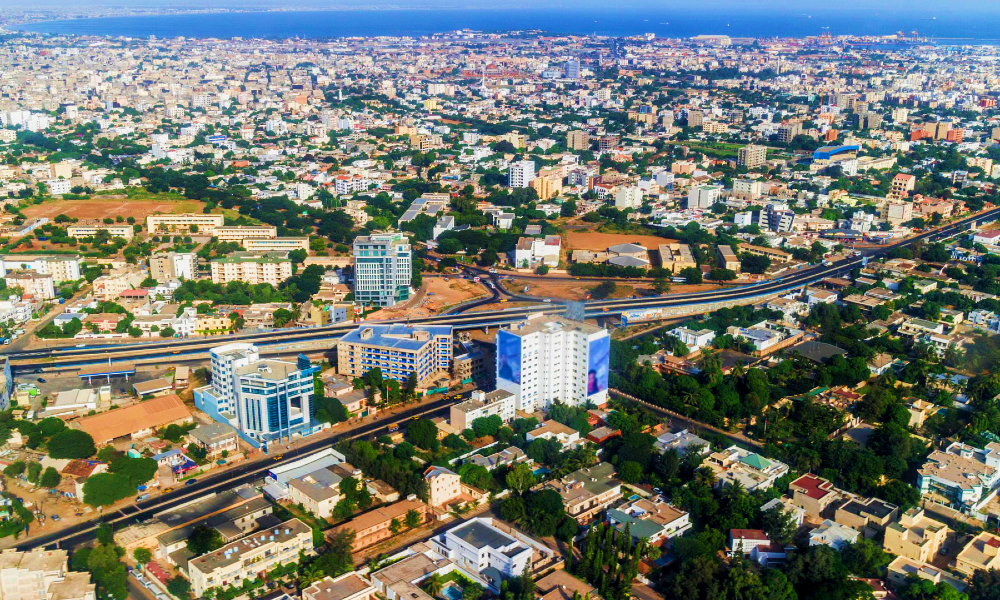
Recreational Facilities in Dakar
Dakar offers a range of recreational facilities for residents and tourists. Here are some popular options:
-
Dakar Golf Club
Located in the heart of Dakar, this club features a challenging 18-hole golf course with beautiful views of the Atlantic Ocean.
-
Sea Plaza Mall
Located on the west cornice, Sea Plaza is one of Dakar’s first shopping malls. It houses a variety of international and local brands, restaurants, and a cinema.
-
Dakar City Mall
Located in the neighborhood of Sicap Amitie, Dakar City Mall offers a wide selection of shops including fashion, electronics, and supermarkets.
-
Virage Beach
Situated near the Almadies neighborhood, Virage Beach is known for its vibrant atmosphere, beachside restaurants, and water sports activities.
-
Ngor Beach
Found on Ngor Island, this beach is known for its picturesque setting and crystal-clear water. It’s an ideal place for swimming, surfing, and enjoying beachside cafes.
-
Goree Island
A short ferry ride from Dakar, Goree Island is a UNESCO World Heritage site that offers a glimpse into Senegal’s dark history of the transatlantic slave trade. Visitors can explore historical sites and museums, making it both educational and thought-provoking.

Best International Schools in Senegal
For expatriate families seeking quality education for their children, Dakar provides a range of international schools. These institutions offer internationally recognized curricula, English language instruction, and a multicultural environment.
Some renowned international schools in Dakar include :
- International School of Dakar (ISD)
- Dakar Academy
- Lycée Jean Mermoz
- Ecole Actuelle Bilingue
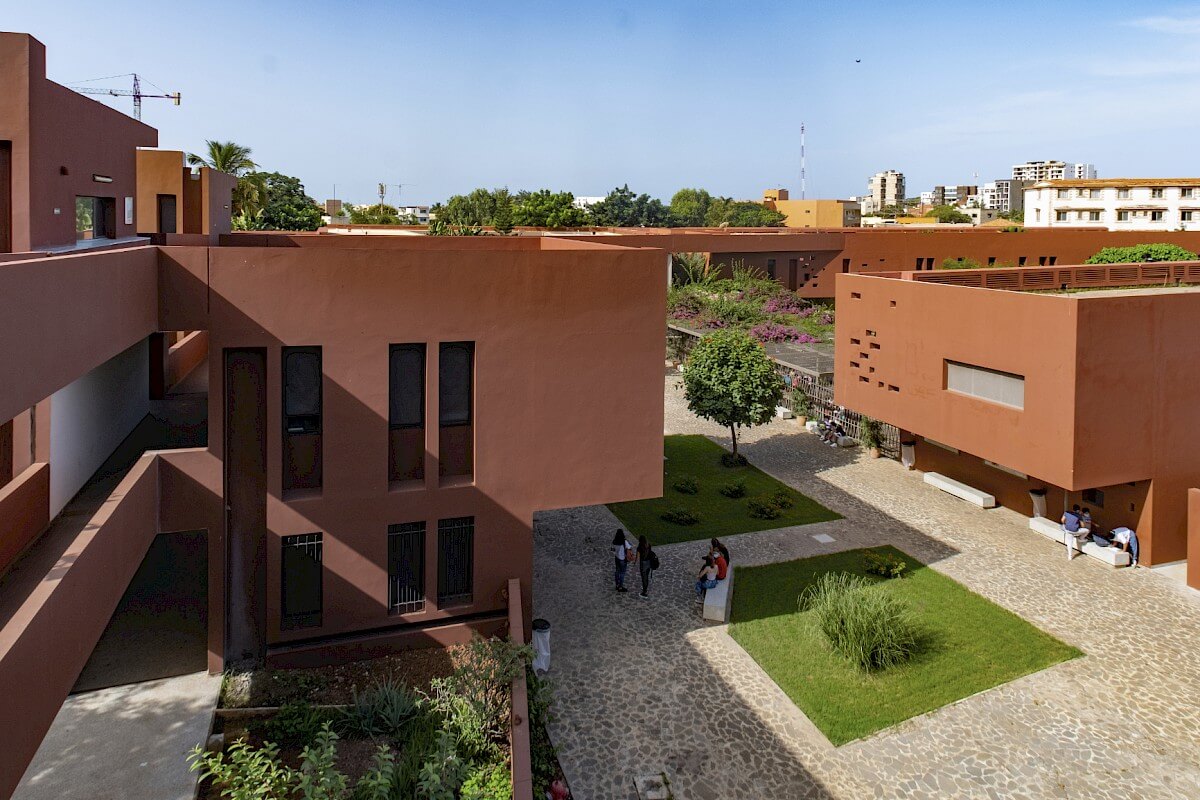
Tourist Attractions in Senegal
Senegal is a treasure trove of tourist attractions that showcase its rich cultural heritage and natural wonders.
Some must-visit tourist destinations include:
- Lac Rose: Also known as the Pink Lake, this natural wonder gets its rosy hue from a unique combination of algae and high salt content. Visitors can float effortlessly in its buoyant waters.
- The Bandia Reserve: Situated near the Petite Cote, The Bandia Reserve is a private wildlife reserve where visitors can go on safari to see a variety of animals including giraffes, rhinos, antelopes, and zebras.
- Saloum Delta National Park: This national park located in the Saloum Delta is a UNESCO Biosphere Reserve. It features a unique ecosystem of mangroves, sand islands, and salt lagoons offering opportunities for wildlife spotting, boat trips, and cultural encounters with the local communities.

Cultural Awareness and Etiquette when Living in Senegal
Senegal is a country with a rich cultural heritage and traditions that are deeply cherished by its people.
As a foreigner visiting or residing in Senegal, it’s important to be aware of and respectful towards the local customs and etiquette.
Here are a few cultural aspects to keep in mind:
-
Local Language
French is the official language of Senegal but Wolof is widely spoken and understood. Learning a few basic phrases in Wolof can help you communicate better with the locals and enhance your cultural experience.
-
Greetings and Hospitality
Senegalese people are known for their warmth and hospitality. Greetings are an essential part of the culture and it is customary to exchange pleasantries before engaging in conversations or business. Handshakes are common and it’s polite to greet elders and those in authority first.
-
Dining Etiquette
Senegalese cuisine is flavorful and diverse, and sharing meals is an important social ritual. Eating with your right hand is the norm as the left hand is considered unclean. It’s polite to wait for the host to begin eating first before you start. Express your appreciation for the meal by saying “jerejeuf” (thank you) when you’ve finished.
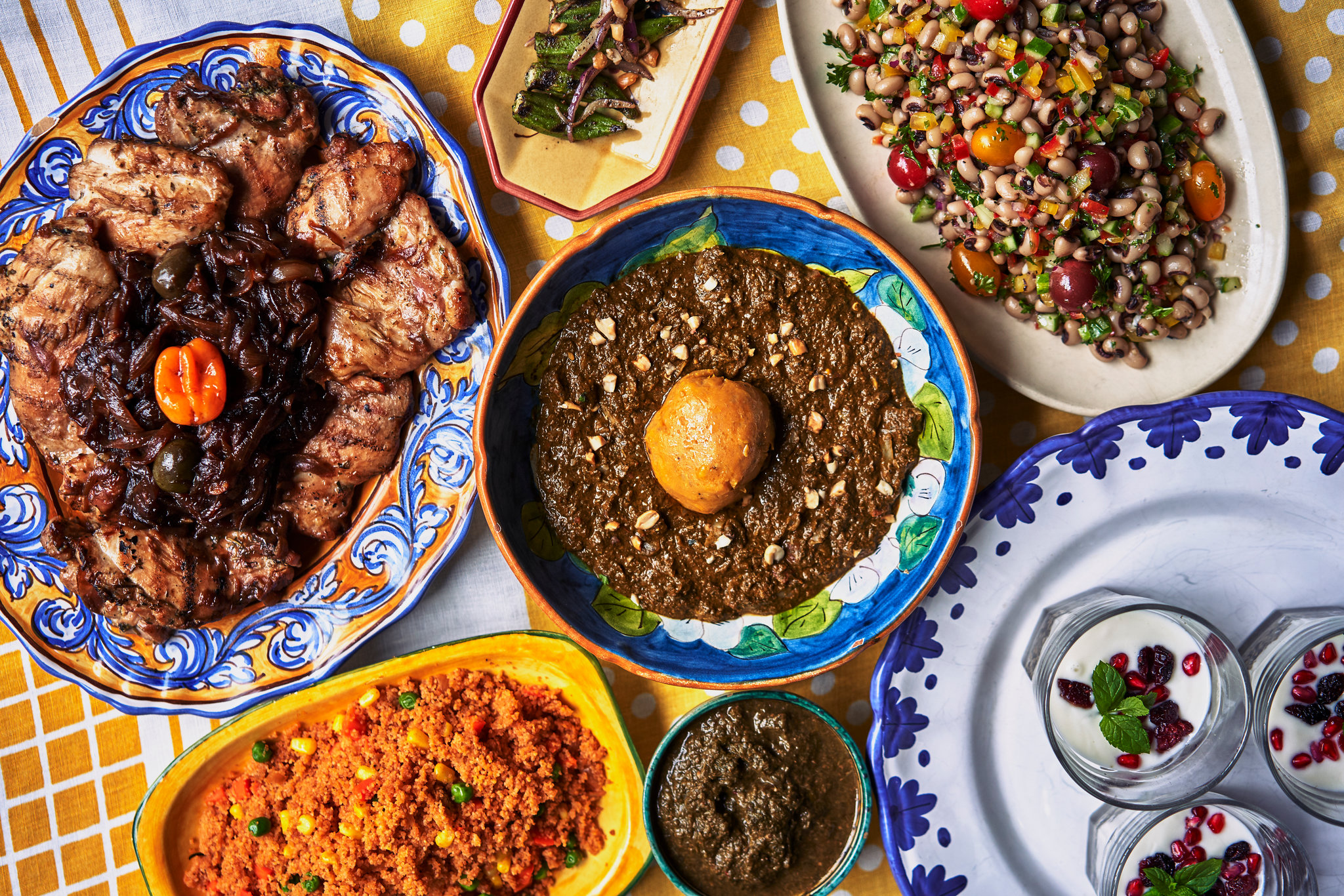
-
Bargaining
In local markets and street vendors, bargaining is common practice. It’s expected to negotiate the price but always do so with respect and a friendly attitude. Remember that haggling is part of the cultural experience so enjoy the process while being mindful of fair pricing and the vendor’s livelihood.
-
Music, Dance and Festivals
Senegal has a vibrant music and dance scene which is an integral part of the culture. Traditional music such as Mbalax, Pulaar rhythms and Sabar are celebrated during cultural festivals and events. Embrace the opportunity to experience the lively music and dance performances as they provide a deeper understanding of the Senegalese spirit and heritage.
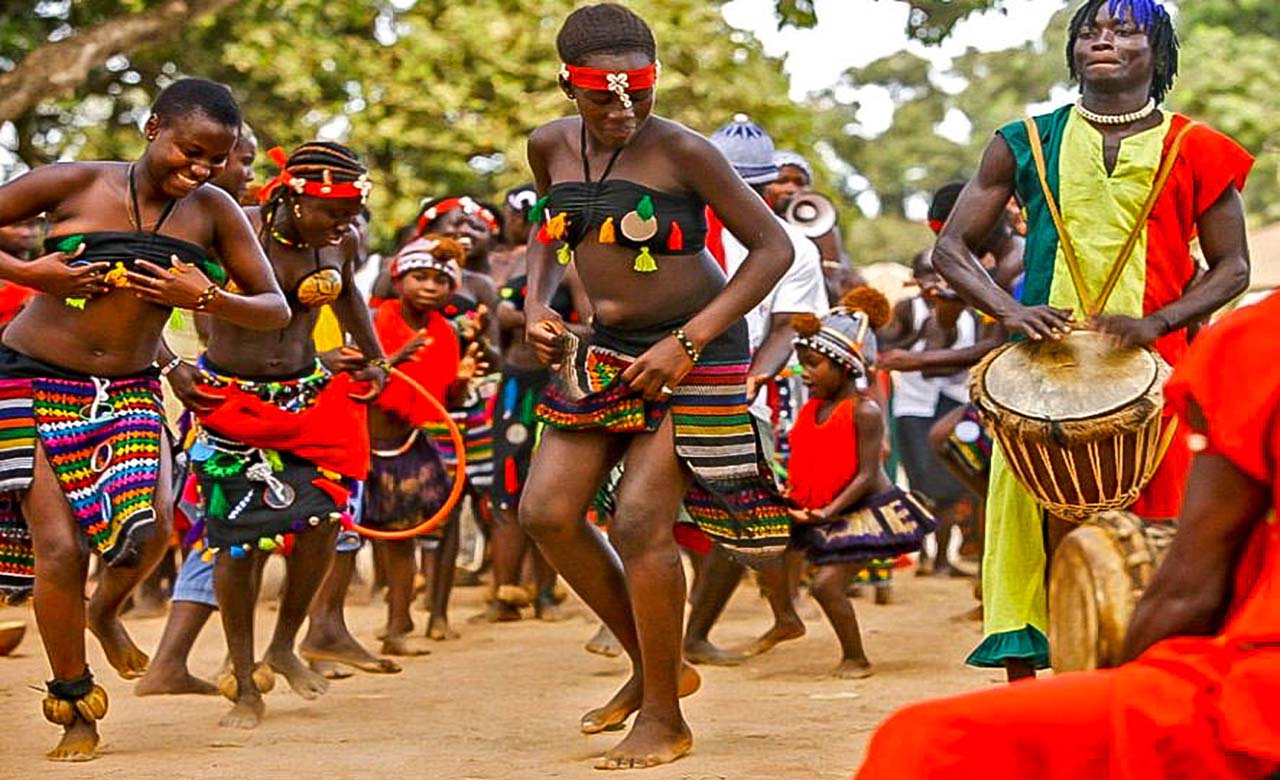
-
Respect for Senegalese Culture
Senegal is predominantly a Muslim country and Islam plays a significant role in the daily lives of its people. It’s essential to show respect for the local customs and religious practices. Dress modestly when visiting religious sites. Women may consider covering their heads with a scarf when entering mosques.
In conclusion, Dakar is a city of rich diversity, offering a range of experiences for expatriates and foreigners. From exploring the local markets to visiting historical landmarks and enjoying the beaches and food, there is something for everyone. By embracing the city’s culture and heritage, visitors can have a deeper understanding of Senegal and its people.
Niofar Executive Relocation in Senegal
Are you moving to Senegal? Niofar Executive Relocation is the leading relocation management company based in Dakar, Senegal, with a branch in Nouakchott, Mauritania, and the only EuRa (European Relocation Association)-certified company in the country. They are also a member of the American Chamber of Commerce, as the Founder & CEO, Danielle Ciribassi, is American with 15 years of experience living in Senegal.
From traveling to Senegal to navigating administration & residency, and securing housing, Niofar is your best bet for a smooth and stress-free relocation experience to Senegal.




